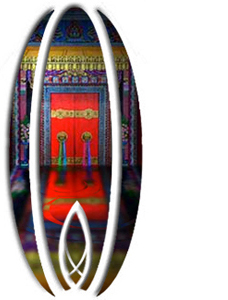Spirituality
- At June 10, 2007
- By Betty
- In Mysticism, Religion
 0
0

Spirituality, in a narrow sense, concerns itself with matters of the spirit. The spiritual, involving (as it may) perceived eternal verities regarding humankind’s ultimate nature, often contrasts with the temporal, with the material, or with the worldly. A sense of connection forms a central defining characteristic of spirituality – connection to something greater than oneself, which includes an emotional experience of religious awe and reverence. Equally importantly, spirituality relates to matters of sanity and of psychological health. Like some forms of religion, spirituality often focuses on personal experience (see mysticism).
Spirituality may involve perceiving life as higher, more complex or more integrated with one’s world view; as contrasted with the merely sensual.
An important distinction exists between spirituality in religion and spirituality as opposed to religion.
In recent years, spirituality in religion often carries connotations of a believer having a faith more personal, less dogmatic, more open to new ideas and myriad influences, and more pluralistic than the doctrinal faiths of established religions. It also can connote the nature of believers’ personal relationship or “connection” with their god(s) or belief system(s), as opposed to the general relationship with a Deity as shared by all members of a given faith.
Those who speak of spirituality as opposed to religion generally meta-religiously believe in the existence of many “spiritual paths” and deny any objective truth about the best path to follow. Rather, adherents of this definition of the term emphasize the importance of finding one’s own path to whatever-god-there-is, rather than following what others say works. In summary: the path which makes the most coherent sense becomes the correct one (for oneself). Many adherents of orthodox religions who regard spirituality as an aspect of their religious experience tend to contrast spirituality with secular “worldliness” rather than with the ritual expression of their religion.
People of a more New-Age disposition tend to regard spirituality not as religion per se, but as the active and vital connection to a force, spirit, or sense of the deep self. As cultural historian and yogi William Irwin Thompson (1938 – ) put it, “Religion is not identical with spirituality; rather religion is the form spirituality takes in civilization.” (1981, 103)
For a religious parallel to the approach whereby some see spirituality in everything, compare pantheism.
Until recent centuries, the history of spirituality remained bound up within the history of religion. Spiritual innovators who operated within the context of a religious tradition became either marginalised/suppressed as heretics or separated out as schismatics. In these circumstances, anthropologists generally treat so-called “spiritual” practices such as shamanism in the sphere of the religious, and class even non-traditional activities such as those of Robespierre’s Cult of the Supreme Being in the province of religion.
Schmidt (2005) sees Ralph Waldo Emerson (1803- 1882) as a pioneer of the idea of spirituality as a distinct field. Important early 20th century writers who studied the phenomenon include William James (The Varieties of Religious Experience (1902)) and Rudolph Otto (especially The Idea of the Holy (1917).
The distinction between the spiritual and the religious became more common in the popular mind during the late 20th century with the rise of secularism and the advent of the New Age movement.

